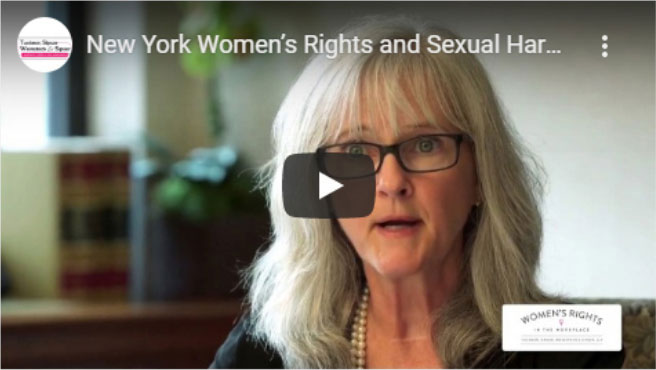 The rights of pregnant workers have long been a topic of legal debate, with evolving federal and state regulations shaping workplace protections. Federal law provides critical legal rights and protections against pregnancy discrimination and workplace harassment, ensuring that conditions related to pregnancy are treated fairly. In recent years, executive orders have played a crucial role in modifying how employment laws are enforced. With Donald Trump’s executive orders rolling back protections for certain marginalized groups, the question arises: Could his executive orders impact pregnancy accommodations in the workplace?
The rights of pregnant workers have long been a topic of legal debate, with evolving federal and state regulations shaping workplace protections. Federal law provides critical legal rights and protections against pregnancy discrimination and workplace harassment, ensuring that conditions related to pregnancy are treated fairly. In recent years, executive orders have played a crucial role in modifying how employment laws are enforced. With Donald Trump’s executive orders rolling back protections for certain marginalized groups, the question arises: Could his executive orders impact pregnancy accommodations in the workplace?
Pregnant workers have legal rights, but executive orders can impact enforcement. If your employer denied accommodations or discriminated against you, contact Tuckner, Sipser, Weinstock & Sipser for a free consultation. Take action to protect your rights today.
Understanding Executive Orders and Workplace Protections: A Guide from a Pregnancy Discrimination Attorney
Executive orders are directives issued by the President that manage the operations of the federal government. While they cannot overturn statutory protections under laws such as the Pregnancy Discrimination Act (PDA), the Pregnant Workers Fairness Act, or the Americans with Disabilities Act (ADA), executive orders can influence how these laws are enforced. Under the Trump administration, priorities could shift, potentially altering workplace protections for pregnant employees. As NYC pregnancy discrimination attorneys with decades of experience, we can provide the necessary knowledge and resources to protect the rights of individuals facing discrimination in the workplace.
The Pregnancy Discrimination Act and Accommodations for Pregnant Workers
 The Pregnancy Discrimination Act of 1978 was an amendment of Title VII of the Civil Rights Act of 1964 prohibiting employers with 15 or more employees from discriminating against their employees based on pregnancy, childbirth, or related medical conditions. Covered employers must treat pregnancy-related conditions the same as any other temporary disability in terms of accommodations, leave, benefits such as health insurance, and job protection. The Pregnancy Discrimination Act is a landmark law that significantly reduced pregnancy discrimination practices including:
The Pregnancy Discrimination Act of 1978 was an amendment of Title VII of the Civil Rights Act of 1964 prohibiting employers with 15 or more employees from discriminating against their employees based on pregnancy, childbirth, or related medical conditions. Covered employers must treat pregnancy-related conditions the same as any other temporary disability in terms of accommodations, leave, benefits such as health insurance, and job protection. The Pregnancy Discrimination Act is a landmark law that significantly reduced pregnancy discrimination practices including:
- Refusing to hire a qualified candidate due to pregnancy
- Firing a pregnant employee because of the pregnancy or related medical conditions
- Denying a pregnant employee health insurance for pregnancy care despite offering health insurance to other employees
Additionally, the Pregnant Workers Fairness Act (PWFA), which took effect in 2023, requires employers with 15 or more employees to provide reasonable accommodations to pregnant employees. These accommodations may include:
- Additional bathroom breaks
- Modified work schedules
- Temporary reassignment to less hazardous tasks
- The option to sit rather than stand for prolonged periods
The PWFA also prohibits denying employment opportunities such as hiring, promotions, and training due to the need to accommodate the employee, forcing the employee to take paid or unpaid leave in lieu of providing accommodations, and taking adverse action in the terms, conditions, and privileges of a pregnant worker’s employment for requesting or using accommodations.
Additional federal laws protecting pregnant employees include the Family and Medical Leave Act (FMLA), which entitles eligible employees to 12 weeks of job-protected unpaid leave for the birth of a child and to care for the newborn child and the Americans with Disabilities Act (ADA), which treats pregnancy and related medical conditions as temporary disabilities requiring reasonable accommodations in the workplace.
While these legal protections remain in place, enforcement depends on the Equal Employment Opportunity Commission (EEOC). Executive orders can influence agency priorities and enforcement actions.
New York State Laws Protecting Pregnant Workers
 While federal laws such as the Pregnancy Discrimination Act and the Pregnant Workers Fairness Act provide important protections against discrimination for pregnant women, New York State offers even stronger workplace rights for pregnant employees.
While federal laws such as the Pregnancy Discrimination Act and the Pregnant Workers Fairness Act provide important protections against discrimination for pregnant women, New York State offers even stronger workplace rights for pregnant employees.
- New York State Human Rights Law (NYSHRL): Employers in New York, regardless of size, must provide reasonable accommodations for pregnancy-related conditions. This law goes beyond federal requirements by covering smaller businesses that might not be subject to federal laws.
- The New York City Human Rights Law (“NYCHRL”): In addition to state protections, NYC employers with four or more employees must provide reasonable accommodations to pregnant workers, including increased breaks, schedule modifications, assistance with physically demanding tasks, and temporary job reassignments.
- Paid Family Leave: New York’s Paid Family Leave (PFL) program allows eligible employees to take job-protected paid leave for pregnancy-related medical conditions and postpartum recovery, ensuring financial security while recovering.
- Workplace Lactation Protections: State law requires employers to provide break time and a private space (not a restroom) for nursing employees to express breast milk during the workday.
These state and local protections ensure that New York workers have multiple legal avenues to secure fair treatment in the workplace. If federal protections weaken, pregnant employees in New York can still rely on these laws for support.
Trump’s Past Actions on Workplace Regulations
During his first term, Trump issued several executive orders affecting labor policies, often favoring deregulation and reducing employer burdens. Key actions included:
- Rolling back worker protections: The Trump administration prioritized employer flexibility over worker rights, reducing enforcement in workplace discrimination cases. For those who have experienced pregnancy discrimination, it is crucial to consult with pregnancy discrimination lawyers to understand their legal rights and protections.
- Altering federal contractor rules: Trump revoked executive orders that had strengthened anti-discrimination policies for federal contractors, weakening workplace protections for vulnerable groups.
- Reshaping the EEOC: The administration appointed officials who focused more on business-friendly policies, leading to reduced enforcement of discrimination claims.
So far, Trump’s second administration has proved to be a renewed effort to roll back protections for workers and weaken enforcement by agencies such as the EEOC. Some notable actions in the first month of the Trump administration have included:
- Eliminating diversity, equity, and inclusion (DEI) programs and policies in the federal government and pressuring private employers to do the same by characterizing DEI policies as potentially illegal discrimination.
- Ordering the federal government to recognize only two binary genders determined by biological sex at conception and rolling back enforcement of anti-discrimination in the laws regarding gender expression and gender identity.
- Regulatory freezes, including halting rulemaking for the Occupational Safety and Health Administration (OSHA), which prevents updating safety standards.
- Mass firings of federal workers, including two EEOC commissioners. By installing loyalists into leadership positions to carry out his enforcement priorities and causing understaffing, Trump is indirectly deregulating employment law by firing those who enforce it.
Potential Executive Actions Affecting Pregnancy Accommodations
 As Trump continues to reverse worker protections, potential executive orders could:
As Trump continues to reverse worker protections, potential executive orders could:
- Further Limit EEOC Investigations: Directing the EEOC to focus on mediation rather than litigation could make it harder for employees to hold employers accountable.
- Eliminating OSHA: Trump has pushed legislation to eliminate OSHA. Reducing workplace safety regulations could impact pregnant workers, particularly in physically demanding jobs.
- Rescind or Amend the PWFA Regulations: Executive action could delay or weaken the full implementation of the Pregnant Workers Fairness Act, making it harder for employees to secure accommodations.
- Revise Federal Contractor Rules: A rollback of policies requiring federal contractors to provide strong pregnancy accommodations could diminish protections for thousands of workers.
What Pregnant Workers Can Do to Protect Their Rights
Regardless of potential executive actions, workers still have legal rights. Employees who face pregnancy discrimination should:
- Document Everything: Keep detailed records of interactions with supervisors and HR regarding accommodation requests. Detailed records are crucial to prove pregnancy discrimination.
- Review Workplace Policies: Understand your employer’s policies on pregnancy-related accommodations in the workplace.
- Seek Legal Assistance: Consulting with pregnancy discrimination attorneys can help ensure legal protections are upheld. As experienced pregnancy discrimination attorneys, we can work with you to gather evidence, build a strong complaint, negotiate with your employer, and fight for you at trial if your employer does not agree to sufficient compensation outside of court.
The Process of a Pregnancy Discrimination Case
If you believe you have experienced pregnancy discrimination in the workplace, you may take the following legal steps to seek justice:
- Filing an Internal Complaint: Many employers have internal complaint procedures for discrimination cases. Filing a formal complaint with your HR department may resolve the issue without legal action.
- Filing an EEOC Complaint: If your employer fails to address the discrimination, you can file a charge with the Equal Employment Opportunity Commission (EEOC). This federal agency investigates claims of workplace discrimination. Employees must file an EEOC complaint within 180 days of the discriminatory act, though this deadline may be extended to 300 days for states with additional protections, including New York.
- EEOC Investigation and Mediation: The EEOC will review your complaint, potentially offering mediation between you and your employer to resolve the matter. If mediation is unsuccessful, the EEOC may launch a formal investigation.
- Receiving a Right to Sue Letter: If the EEOC does not resolve the issue, they may issue a “Right to Sue” letter, granting you permission to file a lawsuit against your employer.
- Filing a Lawsuit in Federal or State Court: After receiving the Right to Sue letter, you may file a lawsuit in either federal or state court, depending on applicable laws and where the discrimination took place. Consulting with pregnancy discrimination lawyers can provide you with the necessary legal representation and guidance through this process.
- Litigation and Settlement Negotiations: If the case proceeds to court, both parties may engage in negotiations to reach a settlement. If no agreement is reached, the case will proceed to trial, where a judge or jury will determine the outcome.
What Types of Remedies Are Available in Pregnancy Discrimination Cases?
 Victims of pregnancy discrimination have several legal remedies available to them under federal and state laws. These remedies may include:
Victims of pregnancy discrimination have several legal remedies available to them under federal and state laws. These remedies may include:
- Back Pay and Front Pay: Employees who were wrongfully terminated or denied promotions due to pregnancy discrimination may be entitled to back pay for lost wages and front pay for future earnings.
- Reinstatement: In some cases, a court may order an employer to reinstate a worker who was unlawfully terminated due to pregnancy discrimination.
- Compensatory Damages: Workers may be awarded damages for emotional distress, pain and suffering, and other non-economic harms caused by discrimination.
- Punitive Damages: In cases involving egregious misconduct, courts may award punitive damages to deter future violations.
- Injunctive Relief: Courts may require employers to revise discriminatory policies, implement training programs, or take corrective actions to prevent further discrimination.
- Attorney’s Fees and Legal Costs: Successful claimants may recover attorney’s fees and other legal costs incurred in pursuing their discrimination case.
Frequently Asked Questions (FAQ) About NYC Pregnancy Discrimination
Can executive orders override existing pregnancy discrimination laws?
No, executive orders cannot repeal federal laws like the Pregnancy Discrimination Act or the Pregnant Workers Fairness Act. However, they can impact how these laws are enforced. Additionally, understaffing caused by mass firings of federal workers reduces the ability of agencies like the EEOC to investigate and resolve discrimination claims efficiently.
Could an employer deny pregnancy accommodations due to an executive order?
No, employers must comply with federal and state laws. However, weakened enforcement could make it more difficult for employees to challenge violations.
If my employer refuses to accommodate my pregnancy, what should I do?
You should document the denial, review your company’s policies, and consider filing a complaint with the EEOC. Legal assistance from pregnancy discrimination attorneys can also be beneficial. Consulting with a pregnancy discrimination lawyer can be crucial for winning a pregnancy discrimination case.
Does the Pregnant Workers Fairness Act apply to all employers?
The PWFA applies to employers with 15 or more employees. Some states have additional protections that apply to smaller employers, including New York.
Could state laws protect me if federal enforcement is weakened?
Yes. Many states, including New York, have stronger pregnancy accommodation laws than federal statutes. It is important to understand your rights under state law.
Can I be fired for requesting pregnancy accommodations?
No, firing an employee for requesting accommodations is illegal under federal and New York state law. If this happens, you may have grounds for a pregnancy discrimination lawsuit. As pregnancy discrimination retaliation attorneys, we can fight to protect you from illegal, retribution, standing by your side every step of the way.
How can a New York pregnancy discrimination attorney help if my employer denies accommodations?
As dedicated pregnancy discrimination attorneys, we can assess your case, guide you through filing an EEOC complaint, negotiate with your employer, and represent you in legal proceedings if necessary.
Contact a Pregnancy Discrimination Attorney Today for Your Pregnancy Discrimination Lawsuit
 If you have experienced pregnancy discrimination, it is critical to understand your rights and take action to seek justice. Consulting with pregnancy discrimination attorneys can provide the necessary experience and resources to protect your rights and ensure fair treatment. While executive orders may influence enforcement, the law remains on your side.
If you have experienced pregnancy discrimination, it is critical to understand your rights and take action to seek justice. Consulting with pregnancy discrimination attorneys can provide the necessary experience and resources to protect your rights and ensure fair treatment. While executive orders may influence enforcement, the law remains on your side.
The attorneys at Tuckner, Sipser, Weinstock, & Sipser are an experienced team of New York City-based pregnancy discrimination lawyers dedicated to fighting for the rights of pregnant workers. We offer free consultations to help you take the first step towards justice.
New York offers strong protections for pregnant workers, and consulting with local attorneys who are familiar with federal, New York state, and local New York City laws can help you understand your options and seek any compensation you may be entitled to.
Contact us today for a free consultation with a tenacious NYC pregnancy discrimination lawyer to discuss your case and protect your rights in the workplace.

